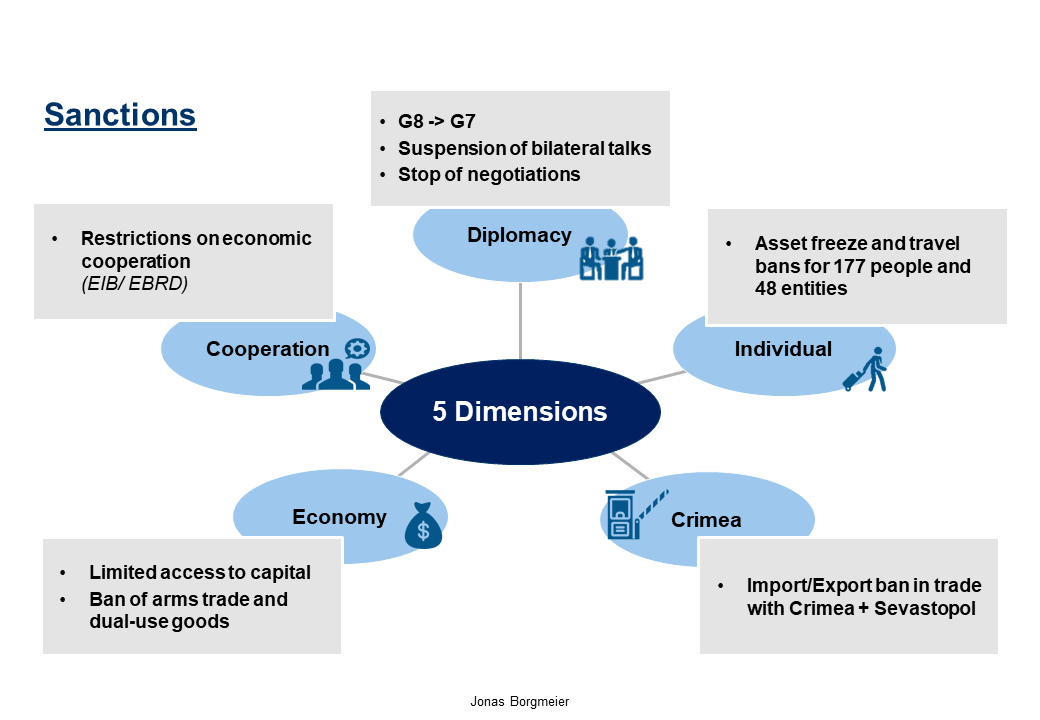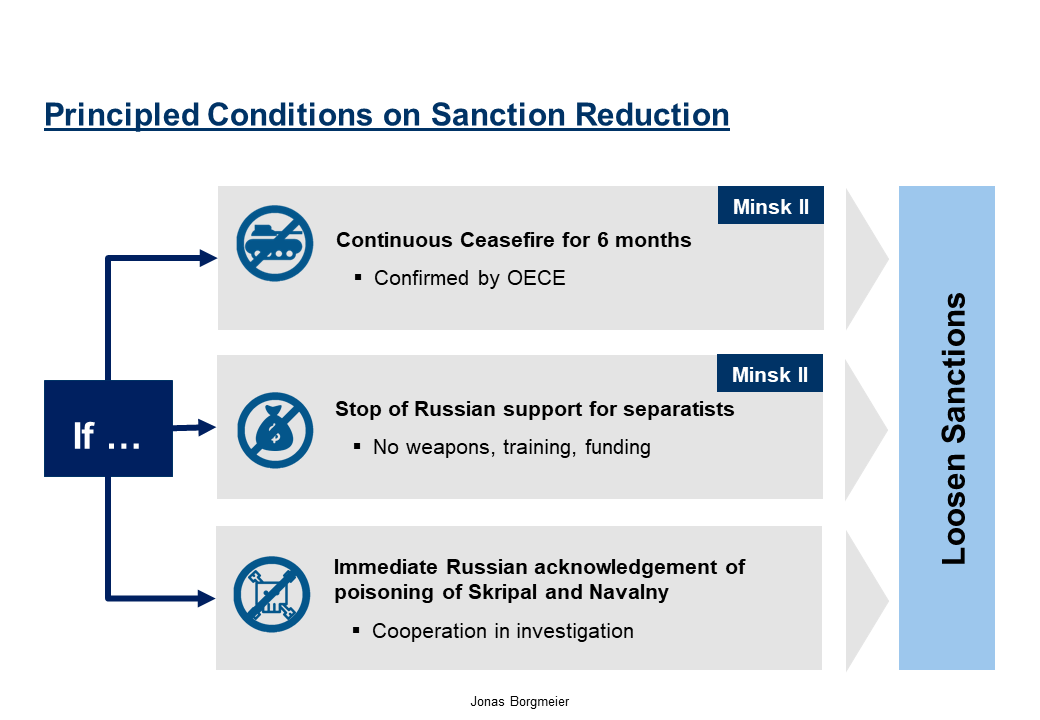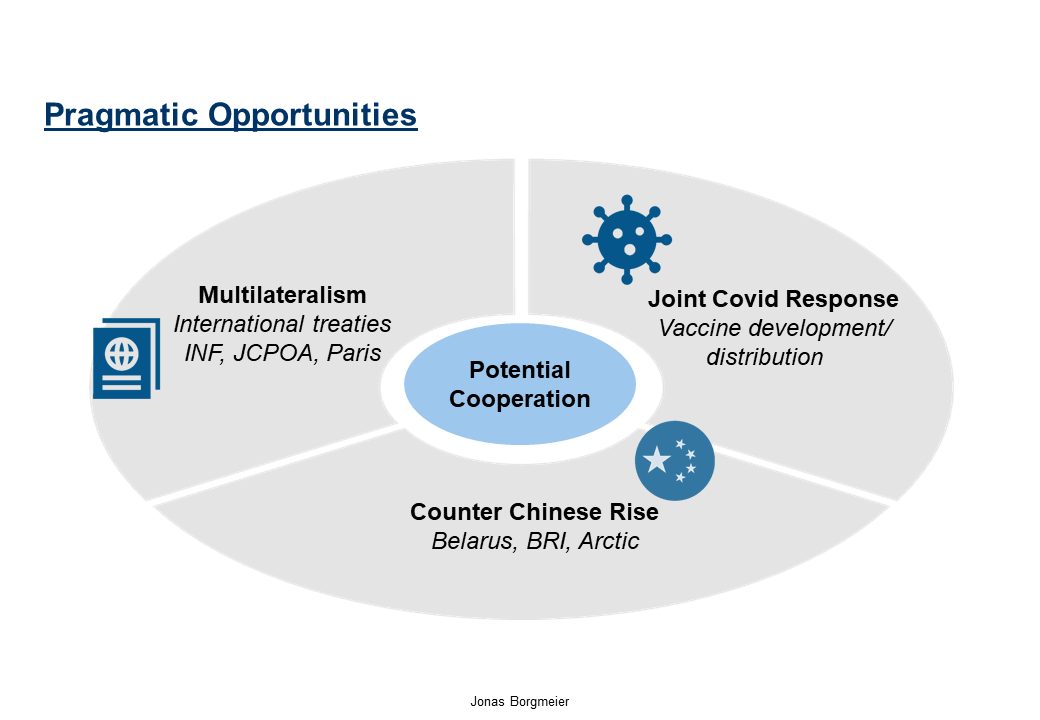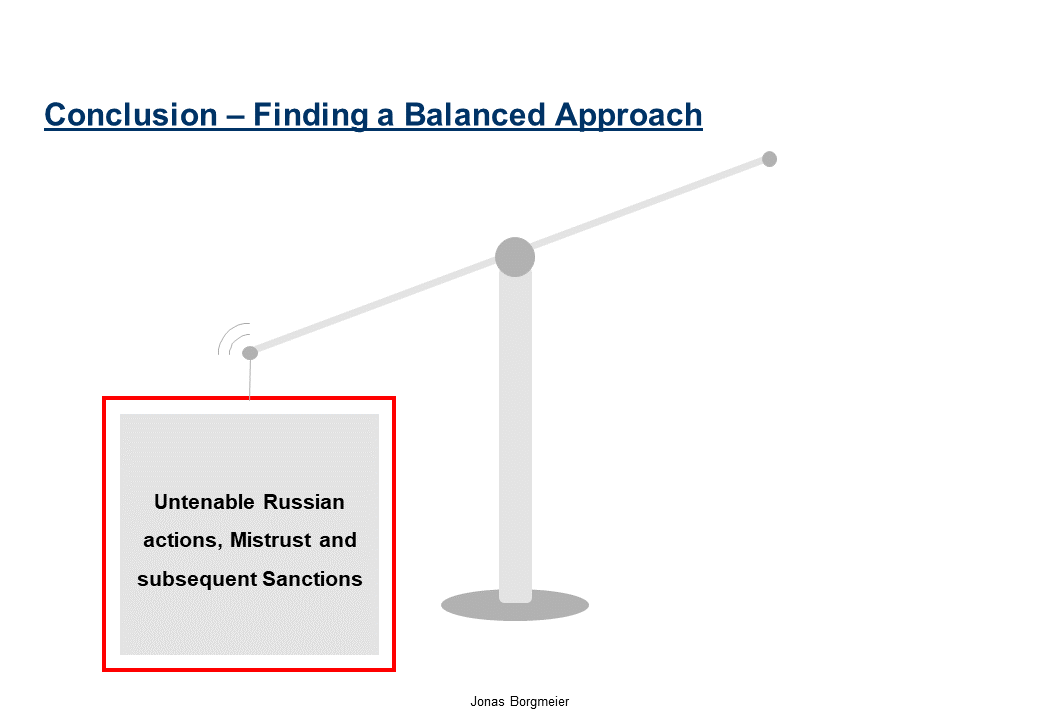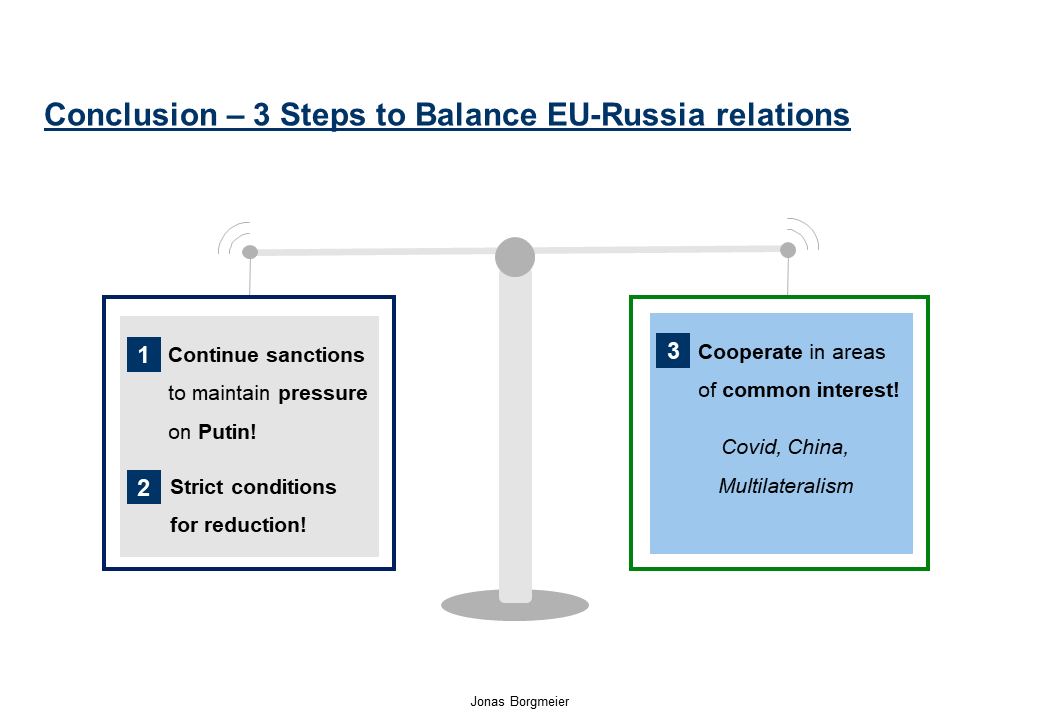How to apply Principled Pragmatism in EU-Russia relations
Ever since the Russian annexation of the Crimean Peninsula, the multi-level relations between the European Union and its Eastern neighbor have deteriorated. Most recent episodes include the poisoning of Alexej Navalny and the continuous breach of the Minsk II agreement. In this post, I show how the EU’s Principled Pragmatism approach can be applied to EU-Russia relations.
The EU Global Strategy introduced Principled Pragmatism as guiding strategy in foreign relations. It bridges the gap between the defense of European values and the dilemmas caused by a more complex world. The EU-Russia relations serve as a prime example to illustrate a gap between the two. On the one hand, the EU supports the sovereignty and the territorial integrity of Ukraine and sanctions Russian unlawful actions comprehensively. Ranging from diplomatic, individual to economic measures, the EU has prolonged and even expanded the restrictions since 2014. On the other end, the EU depends on Russian energy exports and needs Russian cooperation to improve the situation in crisis regions such as Syria and Libya.
Recognizing the current stalemate, a principled and pragmatic approach may start a process of rapprochement. However, this can only be achieved, if the EU remains principled with regard to its sanction regime. I propose three possible ways, the justify to partly loosen sanctions while not harming the EU’s credibility. Firstly, a true and lasting ceasefire needs to be achieved on the Crimean Peninsula. To assure this, the OECE should act as an observer of the peace lasting for at least six months. Secondly, no provision of weapons, training and funding to separatists needs to be stopped. Only if Russian support comes to end, can the EU contemplate to reduce restrictions. Thirdly, the EU has imposed further sanctions in response to the poisoning of Alexej Navalny. While it seems unrealistic, that Russia would claim responsibility for the poisoning of opponents such as Navalny and Skripal, the EU should make the acknowledgement of the poisoning a condition for loosening sanctions. This may also entail to cooperate in the investigations.
Complementing the principled actions, three pragmatic opportunities for fruitful collaborations can be identified. Faced by the ongoing Covid-Crisis, the EU and Russia share similar challenges. Having developed vaccines separately, it is in the common interest to distribute them in neighboring regions. Therefore, increased exchange of know-how and a joint effort in the crisis response may be a step towards closer relations. Apart from this, the EU as well as Russia have to redefine their roles in a changing global arena. The rise of China most likely shapes a bipolar balance of power. In a world dominated by the competition between the United States and China, traditional political alliances and economic relations are questioned and adjusted. While the discourse on the future of the EU has been comprehensive, Russian perspectives tend to be neglected. After failed attempts to become part of the Western democratic system in the 1990s, Russian President Putin focused on building a modern China-Russia Axis. This entailed multidimensional economic and political cooperation embodied by the creation of the Shanghai Cooperation Organization. However, the recent increase of Chinese activities in Russian spheres of influence such as Chinese support for Belarussian leader Alexander Lukashenko and expansion of the Belt and Road Initiative threaten Russian interests. This may motivate Russian and European partners to find beneficial projects that balance Chinese influence - especially in Central Asia. Further, Russia and the EU are partners in a number of international treaties that have been weakened by the disregard of the Trump administration. The renewed multilateral approach communicated by the new Biden administration offers windows of opportunity for European and Russian negotiators to lobby for strong American commitments.
In summary, Russia has shown untenable actions in recent years that have created mistrust in the relationship with the European Union. The latter followed its beliefs and imposed sanctions.
Principled Pragmatism may be an appropriate approach to find a balance in EU-Russia relations. I propose a three-step approach. Firstly, the EU should continue the sanctions to maintain pressure and to stay true to its principles. Secondly, there needs to be a clear and strictly conditioned path out for sanction reductions. Thirdly, a pragmatic approach is needed to establish closer and mutually beneficial ties. This includes cooperation in areas of common interest such as a joint Covid-response, the rise of China as well as the regeneration of multilateralism with the United States.
In my opinion, the EU’s Principled Pragmatism serves as a valuable guideline to bridge frequent gaps between European ideals and realpolitik. It translates the term “carrot and stick” into the language of the European Union. However, it may be questioned whether this approach will succeed in the future. While I pointed out opportunities for cooperation, they may not be powerful enough to overcome the stalemate in EU-Russia relations.
Thank you for investing your time in reading this post. If you have feedback, questions or concerns, feel free to reach out to me on twitter.
Thank you for providing the cover photo @Russian Embassy licensed under the terms of the cc-by-2.0.
